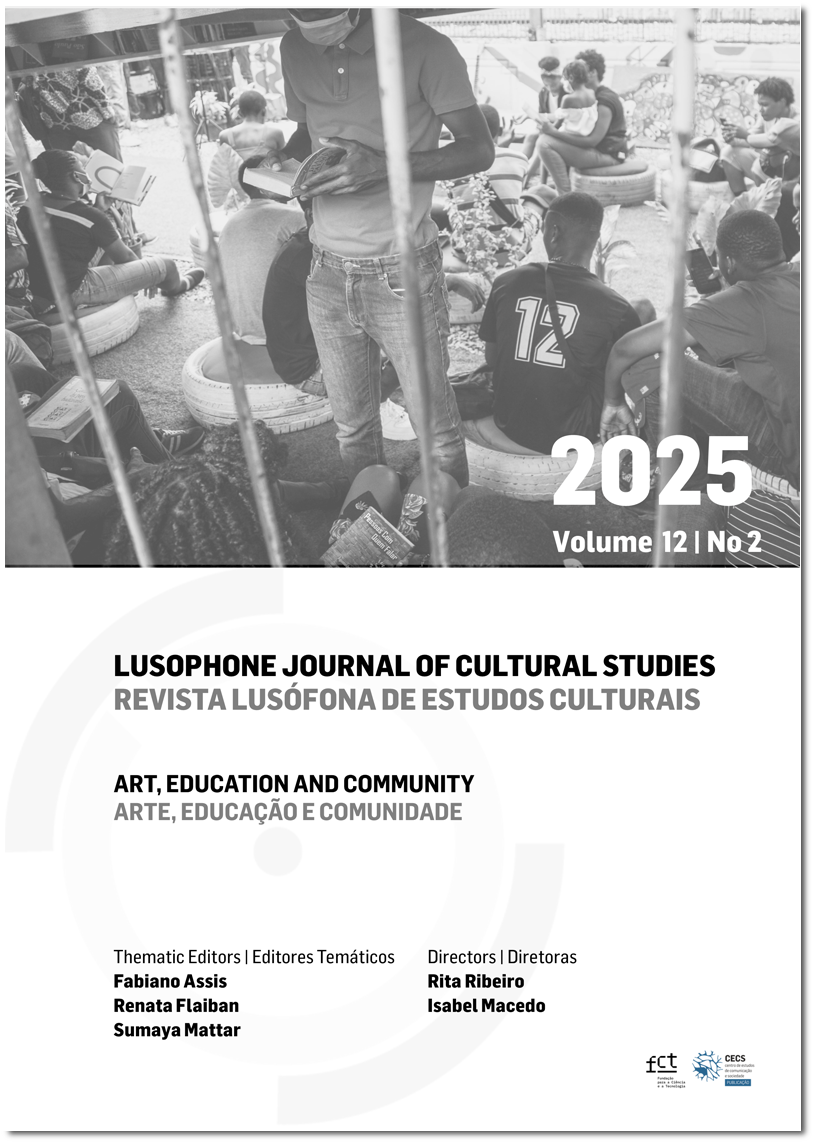Empathy on Stage: Theatre as a Pedagogical Practice for Fostering a More Humanised Medicine
DOI:
https://doi.org/10.21814/rlec.6535Keywords:
theatre, empathy, humanised medicine, emotions in medical education, simulated medical consultationsAbstract
Research shows that, throughout medical school, students tend to experience a significant decline in empathy towards patients and peers. Faced with this challenge, we propose pedagogical strategies that use theatre as a means of exploring themes essential to professional training, creating a space for emotional learning and care. By employing reflection-in-action, the aim is to develop repertoires for dealing with situations that are difficult or far removed from ideals of care. After all, for health professionals to validate their patients’ emotions, they must first recognise and legitimise their own. In this experience report, we discuss the Medical Education Empowered by Theatre (MEET) methodology, which is grounded in Paulo Freire’s Pedagogy of the Oppressed and Augusto Boal’s “theatre of the oppressed,” and is implemented through two approaches: simulated medical consultations and theatre classes. Theatre classes focusing on communication skills foster the “de-mechanisation” of the body — working not only on physical expression but also on habits, dogmas, and deeply rooted certainties (Boal, 1998/2014). This practice broadens the existential repertoire, strengthening otherness and empathy. Students’ testimonies highlight a gap in medical training: the lack of longitudinal humanist approaches, underscoring the urgency of curricular activities that sustain the learning environment as a creative, respectful, and vibrant space for reflection. In light of this, we advocate for the expansion of theatrical practices in medical education as a foundation for a more humanised medicine, committed ethically to the most vulnerable.
Downloads
References
Almeida, E. B., Azevedo-Martins, A. K., & Nunes, V. A. (2013). O corpo como espaço de aprendizagem: Reflexões a partir das vivências de um grupo de teatro formado por adultos na maturidade. Pro-Posições, 24(3), 201–217. https://doi.org/10.1590/S0103-73072013000300012
Amarante, N. (2019). Significado e empatia: Efeitos de uma intervenção baseada em Teatro Playback [Dissertação de mestrado, Instituto Universitário de Ciências Psicológicas, Sociais e da Vida]. Repositório ISPA. http://hdl.handle.net/10400.12/7387
Barreira, N. H. M. (2024). Processos de atuação a partir da simulação de consultas médicas: A arte e a cura [Dissertação de mestrado, Universidade Estadual de Campinas]. Repositório da Unicamp. https://doi.org/10.47749/T/UNICAMP.2024.1489500
Boal, A. (2009). A estética do oprimido. Garamond.
Boal, A. (2014). Jogos para atores e não atores (16.ª ed.). Civilização Brasileira. (Trabalho original publicado em 1998)
Freire, P. (2005). Pedagogia do oprimido. Paz e Terra. (Trabalho original publicado em 1968)
Frutuoso, L. R. (2024). O Teatro do oprimido e a metodologia MEET (Medical Education Empowered by Theater): Caminhos possíveis para identificar opressões na formação médica [Tese de doutorado, Universidade Estadual de Campinas]. Repositório da Unicamp. https://doi.org/10.47749/T/UNICAMP.2024.1406211
Godoy, L. B. de, & Scaglia, A. J. (2024). Os afetos provenientes do jogar: O devir jogador-artista por meio da experiência. Fair Play: Revista de Filosofía, Ética y Derecho del Deporte, (26), 32–50.
Larrosa Bondía, J. (2002). Notas sobre a experiência e o saber da experiência. Revista Brasileira de Educação, (19), 20–28. https://doi.org/10.1590/S1413-24782002000100003
Neumann, M., Edelhäuser, F., Tauschel, D., Fischer, M. R., Wirtz, M., Woopen, C., Haramati, A., & Scheffer, C. (2011). Empathy decline and its reasons: A systematic review of studies with medical students and residents. Academic Medicine, 86(8), 996–1009. https://doi.org/10.1097/ACM.0b013e318221e615
Quilici, C. S. (2022). A arte de desarmar: Corpo, escrita e dispositivos performativos em tempos sombrios. Urdimento – Revista de Estudos em Artes Cênicas, 1(43), 1–19. https://doi.org/10.5965/1414573101432022e0108
Santos, M. R. e S. (2024). A empatia e o contágio: As impregnações dos encontros. Revista Sala Preta, 23(2), 220–241. https://doi.org/10.11606/issn.2238-3867.v23i2p220-241
Schlittler, L. X. C., Celeri, E. H. R. V., Azevedo, R. C. S., Dalgalarrondo, P., & Santos Júnior, A. (2023). Prevalência de comportamento suicida em estudantes de medicina. Revista Brasileira de Educação Médica, 47(3), e097. https://doi.org/10.1590/1981-5271v47.3-2023-0069
Schweller, M., Wanderlei, J., Strazzacappa, M., Sá, F. C., Celeri, E. H. R. V. & Carvalho-Filho, M. A. (2014). Metodologias ativas para o ensino de empatia na graduação em medicina – Uma experiência da Unicamp. Cadernos da ABEM, 10, 36–46.
Schweller, M., Ribeiro, D. L., Passeri, S. R., Wanderley, J. S., & Carvalho-Filho, M. A. (2018). Simulated medical consultations with standardized patients: In-depth debriefing based on dealing with emotions. Revista Brasileira de Educação Médica, 42(1), 82–91. https://doi.org/10.1590/1981-52712018v42n1RB20160089
Silveira, G. L., Campos, L. K. S., Schweller, M., Turato, E. R., Helmich, E., & Carvalho-Filho, M. A. (2019). “Speed up”! The influences of the hidden curriculum on the professional identity development of medical students. Health Professions Education, 5(3), 198–209. https://doi.org/10.1016/j.hpe.2018.07.003
Downloads
Published
How to Cite
Issue
Section
License
Copyright (c) 2025 Nádia Hellmeister Morali Barreira, Letícia Rodrigues Frutuoso

This work is licensed under a Creative Commons Attribution 4.0 International License.
Authors own the copyright, providing the journal with the right of first publication. The work is licensed under a Creative Commons - Atribuição 4.0 Internacional License.








